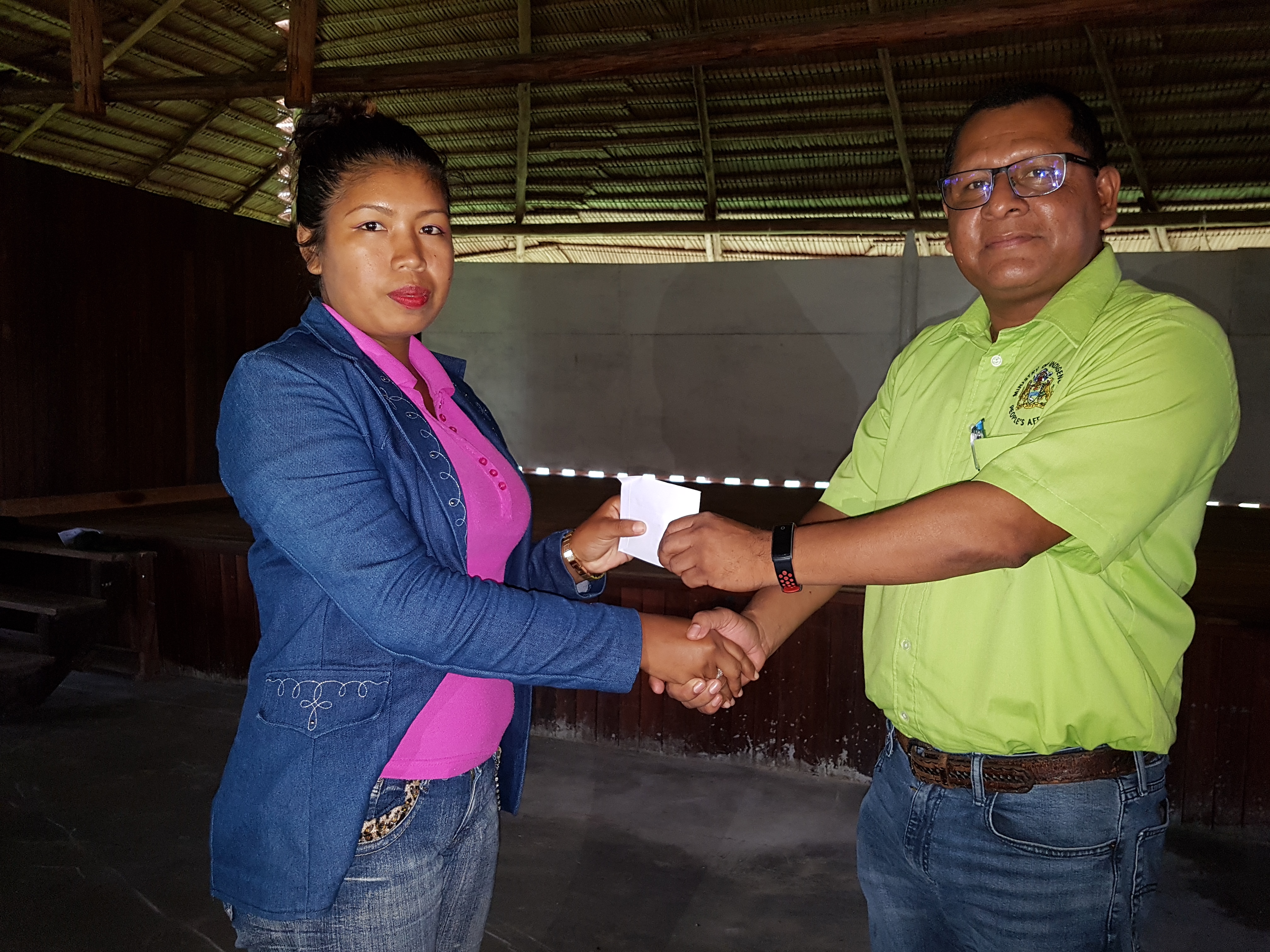
Marina Hope is among thousands of highly successful young indigenous entrepreneurs who are realizing life changing experiences as beneficiaries of the Hinterland Employment Youth Service HEYS Program, the Ministry of Indigenous Peoples’ Affairs flagship Youth program.
Twelve participants of the program with existing business ventures in Moraikobai, Mahaica-Berbice, Region 5 Friday last, received a fifty thousand dollar grant each, to boost their respective establishments.
During a moving testimony to the changes realized in her life through the Program, Hope said “because of the HEYS program, today I am now a seamstress, own my own sewing machine, and a grocery shop. I never had this opportunity before and I am really thankful for it”.
Latoya Jacobs another beneficiary of the program said “this HEYS Program did a wonderful thing for me in my life, I was at home sitting down doing nothing, and since this program came out, I started knowing things that I never know especially the catering side. I never know to make like egg ball, pine tart and now I trying with all of that”.
Cheryl Clinton, a single parent said “starting in the HEYS program I was living a single parent life, I have four kids and it was not easy and I must thank the Government for choosing to put the program in this village. I’m happy to be on board because from that I was able to build and own my own home and for that I am happy”.
Clinton speaking on behalf of her cousin Vanessa Clinton who is differently abled, but running a successful poultry business said “it is helping her a lot because she has a family of two. It’s helping her to send her daughter to school and in the home and even help her husband so the business she is in is great and is helping her”.
Amesha Adrian said “before this program I was a dependent person and then this program came on board and I was able to take this opportunity and today I am no longer dependent, but independent. I can be able to help myself and help my husband also, to build a future life”.
Neil Persaud who is the Program Monitor for Coastal Villages said “we have seen the fruits of this program today, the evidence is there. The program is a catalyst or an agent that causes development in a faster way and this is what HEYS is all about. It is for your development. I like the stories where you were once dependent now you are independent, that’s the goal, that’s what we want”.
He added that “we want to thank those who would have made use of this opportunity to develop yourself and build and become independent so we want to encourage you to continue on that path”.
Persaud further explained that Government has invested some $9.5M in the village of Moraikobai in an effort to empower them individually, but to also boost economic activities there.
David James who is the Legal Advisor to Minister of Indigenous Peoples’ Affairs Sydney Allicock said he was pleased to see the vision of President David Granger for Hinterland Development realized.
“Today looking at what you have done, HEYS is a program that has bourne fruit and has fulfilled the promise that it was meant to be, the promise that it would improve your life, it would improve the life of your community, which means that you will have a better life”.
He added that “you have already shown that you have started well, you have shown the desire, you have shown the commitment and this is not an end in itself this could be the stepping stone to many things greater and bigger in the future, so I think that is the story and the lesson you should learn from HEYS”.
He assured that because of their success and “you are the future of Guyana”, Government remains committed to providing further support towards every aspect of development.
Twenty youth form the village participated in the one year program (2017-2018), and to date, all of the participants have thriving businesses. However, the remaining eight participants will soon receive their grants.
The village of Moraikobai is located some ninety eight miles up the Mahaicony River and is home to more than six hundred residents, who mainly depend on logging, fishing and hunting for their daily existence.
They can now boast of having established village shops, fuel depots, a salon, garment construction shops, snackets, poultry farms, casareep shops and ground provision farms.

